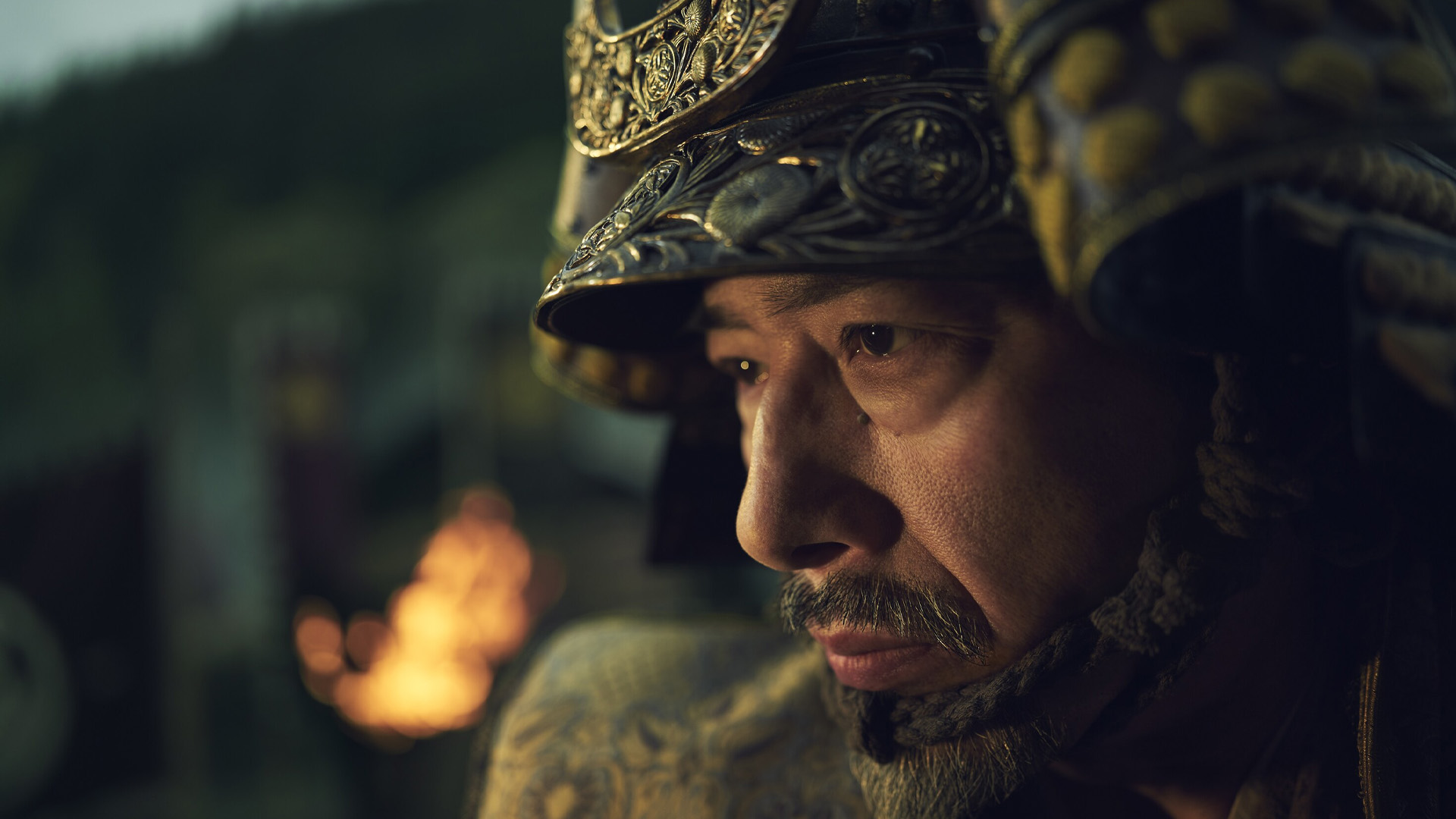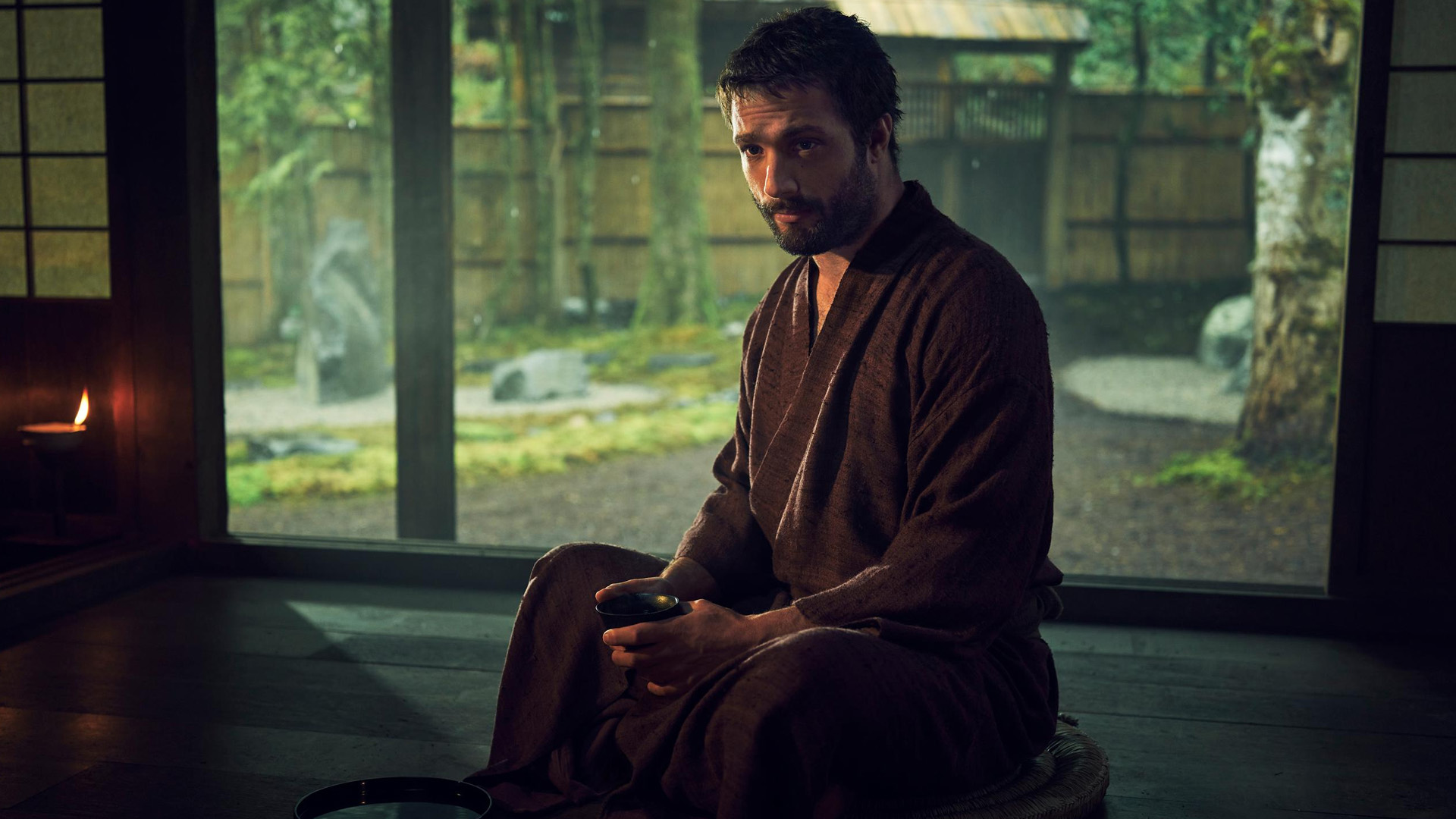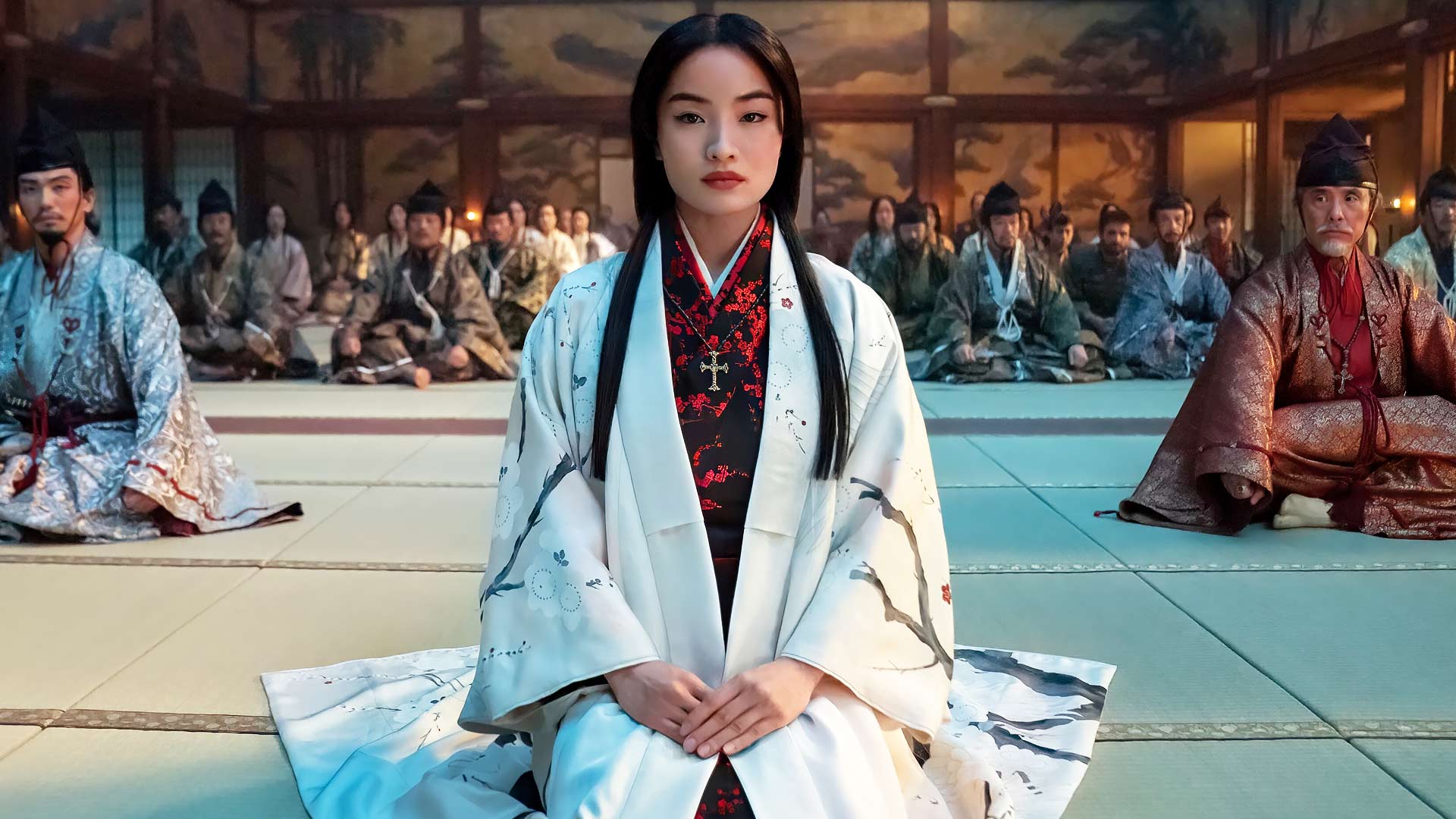The two lead characters in Shōgun make an irresistibly great combination

Shōgun recently gobbled down a record-setting 18 Emmy Awards. Luke Buckmaster says the hype is justified, praising its two chalk-and-cheese lead characters whose journeys steer us through an “end of an era” storyline.
This article was originally published on February 28, 2024
This hugely entertaining adaptation of James Clavell’s classic novel Shōgun, set in 17th century Japan, does a great job evoking a state of dramatic flux—a feeling the political reality of this world is crossing a threshold, past which nothing can be the same. That feeling is stretched out across the show’s entire 10 episode arc, backgrounding the drama with a volatile energy—cracks in the system everywhere, revolutions and counter-revolutions building, no surety other than the inevitability of change. Introductory text explains that the death of Japan’s ruler, the Taiko, has left various warrior lords clamoring for power and “trapped in a bitter struggle.”
It’s in this white hot political reality that one of two lead characters arrives: Cosmo Jarvis’s Pilot Major John Blackthorne, a self-professed “Protestant scoundrel” from England who washes up on Japanese shores on a battered ghost-like ship, which looks like something from Pirates of the Caribbean, caked in mist and bathed in eerie midnight blues. His crew, who are desperate, starving, and soon to be imprisoned, have been sent to disrupt the relationship between the Japanese and the Portuguese Catholics, the Protestants’ sworn enemies, who have established lucrative trade lines.

Blackthorne is a hell of a piece of work: a bull in a china shop with a delectably uncultivated, proto-Malcolm Tucker-ish turn of phrase, in his quieter moments dropping lines such as “fuck yourself, you snivelling little shit rag” and “tell this milk-dribbling fuck smear I am ready to go.” I haven’t read the book, but here Blackthorne is not really a hero, an anti-hero, or a villain. He’s caught up in history and probably on the wrong side of it: a further de-stabilizing effect in an already chaotic environment.
But the finely balanced nature of the show itself is another matter. If Blackthorne is its yin, the yang is Hiroyuki Sanada’s Lord Yoshii Toranaga, who is his polar opposite: a calculated, calm under fire “daimyo” (warrior ruler) who is in a precarious situation, trapped in an Osaka castle by his adversaries, who look set to determine his fate. Like Blackthorne, Toranaga can’t go back, and every path forward is intensely fraught. He knows he’s in a tight spot but he’s not out of the game yet: there’s strings to pull, cards to play, dice to roll.
The way the writers—including Rachel Kondo and Justin Marks, also the co-creators—contrast the pair’s narratives, and increasingly wrap them together, gives the series a rock-solid foundation. An important third player, whose role becomes more pronounced as the series progresses (this article encapsulates the entire first season) is Toda Mariko (Anna Sawai), a Christian convert from a disgraced family line who Toranaga enlists as his English translator. She becomes increasingly aware of the secrets the Portuguese have been keeping, distorting Japan’s perception of the western world.

The three lead performances are all bang-on: a touch histrionic, but in ways that suit the show’s “end of era” energy and rich, heavy grandiosity. There’s lavish spectacle in eye-watering Japanese settings, with a liberal amount of mist to zhuzh up the cinematic texture. But Shōgun’s greatest pleasure, for me, comes from those two central characters. Their dual narrative strands humanise a large, sprawling story, and approach the idea of legend-making from interesting perspectives: not as a tale of great leaders pursuing their destiny, but as people acting boldly out of self-preservation, during moments of upheavel.
There’s a sense, etched throughout the series, that empires are colliding—and in those collisions, the decisions of key players have profound implications, changing the status quo and sending ripples through time. These aren’t easy things to visualise or narrativize, but it’s a challenge well realised: Shōgun is ripsnorting historical fiction, beautifully layered and addictively paced.




















